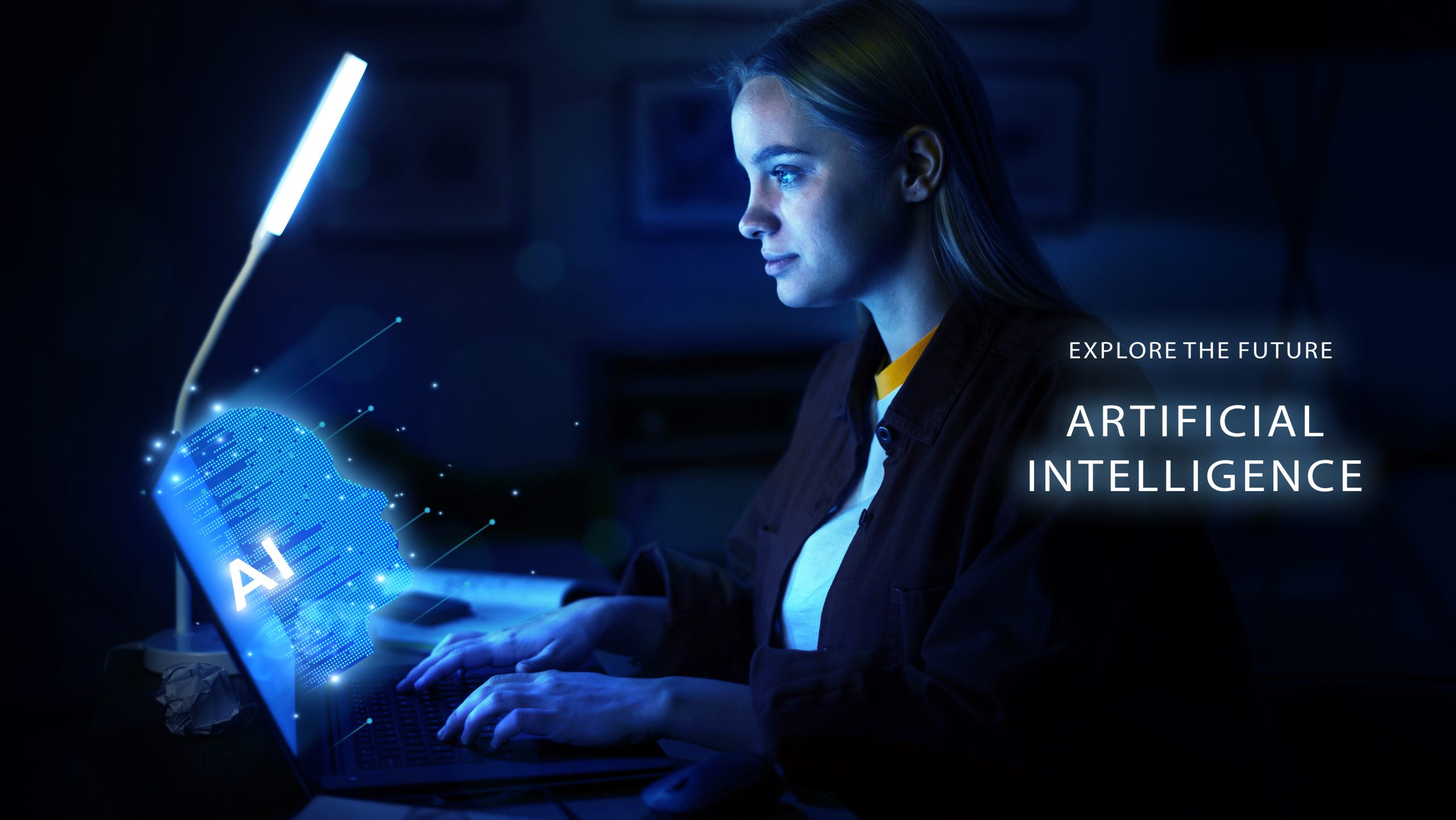
Future skills for Workforce to Co-exist with AI
Essential competencies for thriving in an AI-driven world based on recent interviews with prominent figures in the tech space.
By: Mahanti Lakshmi
As artificial intelligence continues to advance at breakneck speed, the global workforce faces a critical challenge: adapt or fall behind. With AI now capable of automating not just routine tasks but complex decision-making and even creative work, professionals across industries are increasingly asking—what skills will actually matter in the age of AI? Will traditional expertise still hold value, or will new competencies define success? This article explores essential technical and non-technical skills, backed by insights from leading tech voices, to help individuals and organizations not just survive—but thrive—in an AI-powered future.
Both technical and non- technical skills will be mentioned in this blog as both are equally important to progress in one’s career. In today’s market technological advancements are not only meant for tech companies but also large companies that deal with manufacturing, retail, or services. AI helps companies in automating processes, adopting machine learning for predictive analytics, using AI for decision-making so on and so forth.
Preparing for a future where AI is integrated into most job roles requires proactive adaptation from both employees and employers. As AI is advancing, many people are scared that AI might take away their jobs, which is a bitter truth but not the whole story. AI will replace those who don’t adapt it and people who can showcase that they work efficiently by integrating it might survive in the market.
What do experts in the field say?
Tech leaders emphasize that individuals should master AI tools to remain competitive, while organizations must foster a culture that embraces AI-human collaboration.Here is what the creator of Open AI has to say: In a recent interview with Stratechery’s Ben Thompson Sam Altman said “When I was graduating as a senior from high school, the obvious tactical thing was get really good at coding. And this (learning AI) is the new version of that.”
The usage of Artificial Intelligence for writing code is presently a matter of the moment among top executives. Here is what they have been saying recently.
Dario Amodei, the CEO of Anthropic, predicted last week that AI would write 90% of code within six months and “essentially all of the code” in a year.
Kevin Weil, OpenAI’s chief product officer, predicted this week that AI will become better than humans at coding by the end of the year.
What skills will actually matter in the age of AI?
Want to read more and gain knowledge on skills to learn?
In today’s era there are a lot of tools that can help us with AI as well as work in general. But it is difficult to decide which tool can help you out.
If you want to upskill and stay prepared for your career or the market—whether as an individual or a company, competing with fellow employees or market rivals—here are some key skills that experts in the field like Sam Altman advice, that can enhance your deliverables both technically and non-technically:
Technical Skills
If AI is set to automate much of coding work, you might wonder what additional technical skills you’ll need to thrive in the market—whether as an employee or a company in the tech industry.
Regardless of AI’s advancements, having a solid foundation in programming languages, machine learning frameworks, data analysis tools, and a sound understanding of AI ethics and policies remains crucial. This knowledge ensures you can use AI tools effectively and confidently interpret the insights they provide, rather than being left puzzled by their outputs.
First let’s look at some AI tools that will make your work easy and efficient:
AI Tools:
AI tools are a necessity and learning these tools will help any employee upscale their work and stand out in the job market as AI is a new skill that must be inculcated . Pew Research Center survey said 81% of US workers are “non-AI users”. This shows us that inculcating AI gives us a higher and better chance of employment.
Here are some of the sub tools under AI as a tool:
1.Agentic coding:
Agentic AI is a type of Artificial Intelligence that allows you to give autonomity to the AI to a certain extent, so that it can make certain decisions that this form of Intelligence is supposed to handle. It can access data that is given to it and act like an AI agent that can handle it.
For example, in data science and analytics, an AI agent can easily process large datasets and give results as prompted, helping you make decisions faster. Roles such as product management and digital marketing can benefit from AI-driven predictive analytics and sentiment analysis, respectively, giving you a competitive edge by streamlining processes and boosting efficiency.
2.Vibe coding:
This is another form of coding where the Artificial Intelligence is given prompts on what output is required and the AI tools will provide you with the output stated. Based on what you require the output can be changed and made according to your desire.
This will help you fit the needs that you require and be less time consuming. Instead of writing down each line of code one can just give the AI tool the prompt and a basic structure as per your requirement and in case changes need to be done those can also be prompted as well.
3.Artificial General Intelligence:
Artificial General Intelligence (AGI) represents the next frontier in AI—systems that can perform any intellectual task a human can. Unlike today’s narrow AI models, AGI would be capable of understanding, reasoning, learning, and adapting across a wide range of scenarios without needing task-specific training.
While AGI is still under development, its potential future applications could redefine how businesses operate and how professionals interact with technology. Preparing for AGI means developing a mindset of continuous learning, systems thinking, and cross-functional collaboration—skills that will be crucial as AI becomes more autonomous and less reliant on human oversight.
4.Prompt Engineering:
Prompt engineering is a critical new skill that focuses on crafting effective inputs (prompts) for AI systems to generate accurate and useful outputs. As generative AI becomes more advanced, the ability to clearly communicate your needs to an AI tool—whether for content creation, software development, or data analysis—will determine your success in leveraging its full potential.
For instance, a prompt engineer in a marketing team can generate campaign ideas, content drafts, or customer personas by asking the right questions. In product development, prompt engineering can streamline ideation, prototype generation, and user feedback synthesis. This skill empowers professionals across industries to translate human goals into AI actions, effectively becoming the bridge between innovation and implementation.
Non- Technical Skills
Let’s also explore ways to safeguard your unique essence—your “secret sauce”—that no AI can replicate. After all, your secret sauce is simply you and your human touch to your work.
Meta skills
Sam Altman in the year 2023 with a session at IIT Delhi answered a question that a student asked. The question was, “How to safeguard one’s job against the rise of AI and the automation it brings” He himself replied that the key was to maintain Meta skills. In a recent interview with Stratechery’s Ben Thompson also mentioned it again and stressed on cultivating “ resilience and adaptability” as well as the “meta ability to learn” over various other skills. So what are these Meta skills?
Meta-skills are the stepping stones, transferable abilities that enable adaptation, learning, and success in various situations, which include categories like self-management, social intelligence, and innovation.
Here’s a list of the meta-skills (this is a concise version):
- Self-Management involves Adapting, Focusing, Integrity, and Initiative to effectively manage oneself.
- Social Intelligence encompasses Communicating, Feeling, Collaborating, and Leading to enhance interpersonal interactions.
- Innovation covers Curiosity, Creativity, Sense-making, and Critical Thinking for developing novel solutions.
- Other Important Meta-Skills include Resilience, Problem-solving, Empathy, Time Management, Self-awareness, Emotional Intelligence, and Adaptability to support overall personal and professional growth.
You might ask, “Why can’t AI perfectly mimic these human qualities mentioned above?” Modern AI models can simulate attributes like empathy or creativity when specifically trained with relevant data, but they remain non-conscious and operate solely on learned statistical patterns. They rely on conversation history to generate context-aware responses, yet this context doesn’t update their underlying parameters, and even with sufficient context, responses may vary due to the inherent randomness in the generation process.
Core Skills to keep up in the Job Market
These are some general skills that the creator of Open AI himself has mentioned that must be cultivated by every individual to stand out in the crowd in an old interview in 2023 but still can be applicable today. It may all seem like you are aware of them but I bet you have never tried them to make a change in your career or company.
1.The learning process never ends:
Most people think that once they have finished graduating from college or finishing their masters, they think “I don’t need to learn anything anymore”. But that was just the beginning of the process. When you enter the job world in order to understand how it works, there are things you have to learn, maybe relearn or even unlearn.
In companies new technologies and innovative processes should be learned by both employers and employees to keep themselves up to date in today’s market. Skill enrichment can be done by companies to keep themselves as well as their employees updated.
2.Make yourself Adaptable:
This pertains to the mindset. If you have an adaptable and flexible mindset you can change even in uncertainty. This gives you a chance to gain new skills and knowledge resulting in new opportunities increasing your niche. The same goes for companies as well.
3.Have good Communication:
Communication is a tool that is required to put forward a variety of aspects, be it portraying ideas, explaining plans, negotiation, motivating your team or even talking to a customer. In order to move forward in any career or even promoting your company, communication is required. Imagine you had to give an elevator pitch to Elon Musk, each word that you utter in that small amount of time can decide your fate.
4.Foster Creativity:
In history, those who thought out of the box were the ones who made discoveries. Because Newton thought about why the apple fell downwards and not in any other direction he discovered gravity. The Wright Brothers trying to mimic the flight of a bird lead to the invention of the first aeroplane. Such advancements were only possible thanks to creativity. So thinking out of the box and giving your own twist to things can make a difference in your career. AI might be able to help you to do that but AI can’t do that for you.
Stay tuned with our series on workforce blogs and you can get more indepth knowledge on workforce and its trends as well.






